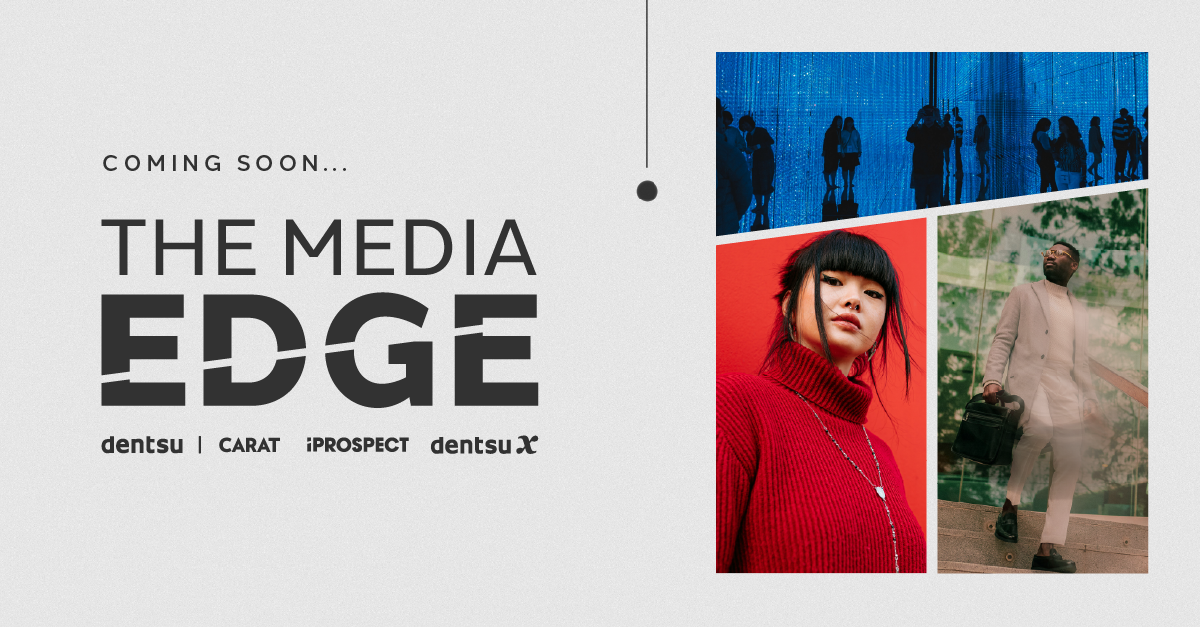Here's how to take an experience-first approach in the algorithmic era.
Let's be honest. You brief a campaign wanting "increased brand awareness" and to "grow sales in a big way." Your team nods along and comes back with the same old media plan focused on impressions and CPMs.
If this sounds familiar, here's some tough love: Your media strategy is probably costing you real growth.
The uncomfortable truth? The cost of boring is increasing. While you're playing it safe with tactical approaches, your competitors are thinking experientially — and winning because of it.
Welcome to the Algorithmic Era
Remember "set it and forget it" campaigns? Those days are gone. We're now in what industry leaders call the algorithmic era—where machine learning curates content and makes decisions in milliseconds.
Here's the kicker: these algorithms aren't working for you. They're optimizing for platforms like Meta, Google, and Amazon—not your brand. Brands are getting flattened. Your ads look like everyone else's. Your distinctiveness is vanishing.
Stop Thinking Like Everyone Else
Most brands stop their thinking at media tactics. The brands actually winning think through four levels:
- Business Objectives - What's this going to do for your bottom line?
- Marketing Objectives - What market are you competing for?
- Communication Objectives - How do you want people to think and feel?
- Media Objectives - Now we can talk channels and tactics.
If you're only focused on that last piece, you're missing the whole picture. Your revenue targets should be driving your media strategy—not just showing up in reporting.
Think Like a Chef, not a Waiter
The brands crushing it approach media like "chefs, not waiters" — bringing collaborative and experiential thinking instead of just executing the same playbook.
You should be:
- Connecting media decisions to business performance
- Starting with business context, not channel preferences
- Demanding specificity over vague objectives
- Focusing on what actually matters ("strategy is sacrifice")
The Simple Test That Changes Everything
Try this "from-to" exercise:
"We are currently third-place beer brand and want to become second-place"
Or:
"We need to increase revenue by 15% year-over-year through premium segment growth"
See how much clearer that is than "increase brand awareness"?
Red Flags You're Still Thinking Tactically
Before planning: Starting with channel preferences instead of business objectives
During briefings: Accepting vague goals without measurable targets
After campaigns: Only measuring media metrics without connecting to business impact
The Bottom Line
In the algorithmic era, experience wins. When people can skip anything, only meaningful brand experiences drive results.
Your media strategy should design experiences that connect your brand with people — not just help you buy efficiently.
The brands that are really growing understand that media is more about the entire business strategy, not just about marketing tactics. They connect decisions to outcomes and think experiences, not channels.
Want to see what this looks like in practice? Check out the complete framework: "Why the Best Experience Wins: Ushering in the Era of Xperience Planning".
The question isn't whether advertising will keep changing, it's whether your brand will lead that change or get left behind.

